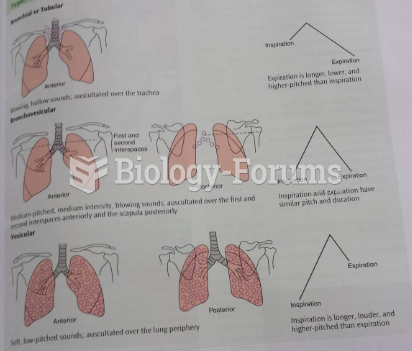|
|
|
More than 34,000 trademarked medication names and more than 10,000 generic medication names are in use in the United States.
The cure for trichomoniasis is easy as long as the patient does not drink alcoholic beverages for 24 hours. Just a single dose of medication is needed to rid the body of the disease. However, without proper precautions, an individual may contract the disease repeatedly. In fact, most people develop trichomoniasis again within three months of their last treatment.
It is widely believed that giving a daily oral dose of aspirin to heart attack patients improves their chances of survival because the aspirin blocks the formation of new blood clots.
The horizontal fraction bar was introduced by the Arabs.
The average office desk has 400 times more bacteria on it than a toilet.







